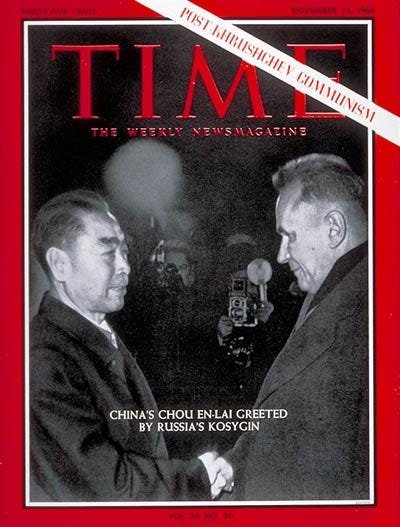The China-US-Russia Triangle
Russia Rocks the Boat
Last weekend I was asked to comment on recent events in Russia for the Mario Nawfal 24-hour marathon Twitter discussion. His Twitter Space beat all major media on breaking developments, and had more than 17 million listeners. I was gardening, and saw my speaking invite too late, but it prompted me to think about what I could have added in the face of so much instant analysis. I recalled a witty reply attributed to Zhou Enlai when asked what he thought about the effects of the French Revolution. “It is too soon to tell.”
The China Report and the EconVue newsletter are paid subscription content. We are very grateful to our readers for their support. Our podcasts are always free.
This past week offered a panoply of explanations, but it is also too soon to tell what’s really going on in the Kremlin. I have been gravitating towards the Russian military term маскировка (maskirovka) as a possible explanation. It is a battle tactic that involves deception and feints and it helped the country win key military victories, including the Battle of Stalingrad. Like my favorite football play, the fake field goal, or as prescribed in Sun Tsu’s The Art of War, deliberate confusion and misinformation can lead to victory. When I heard about the peaceful surrender of the Wagnerites in under 24 hours, my immediate instinct was that this term might apply.




